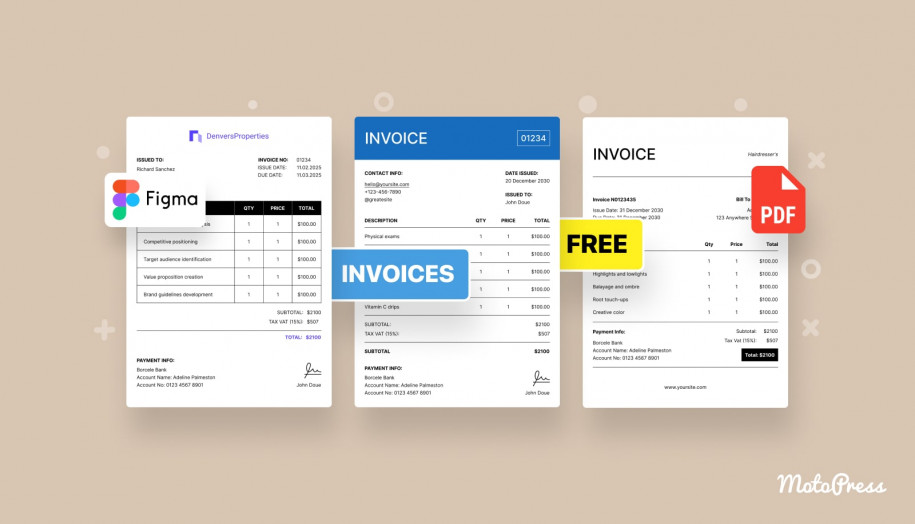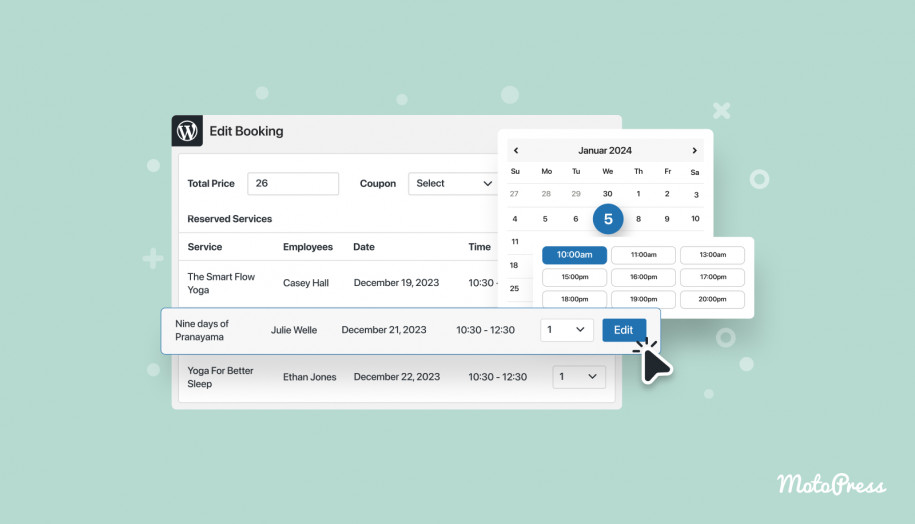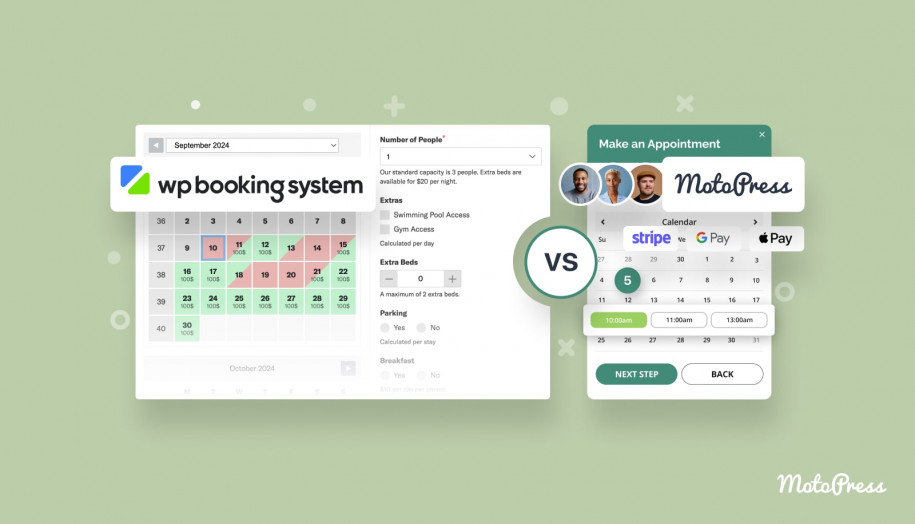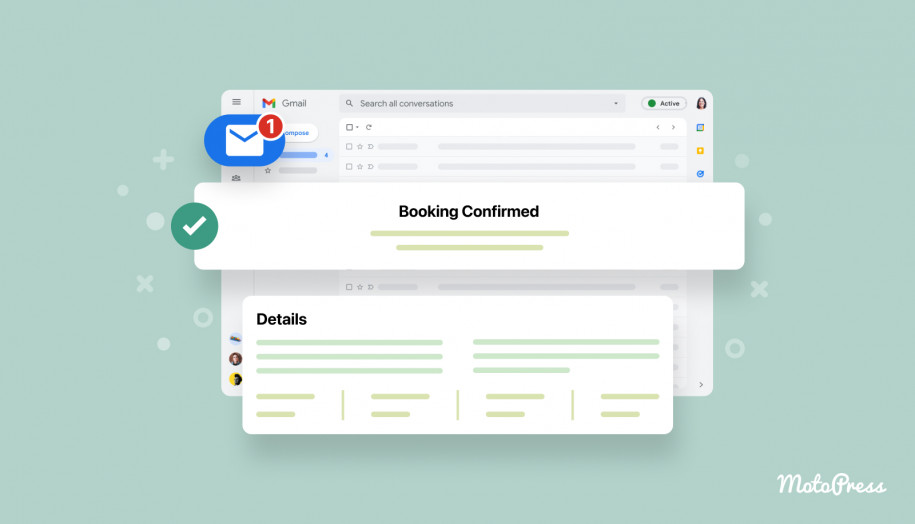How to Start a Notary Business: 10 Most Essential Steps
Table of Contents
As the demand for notary services keeps growing, particularly in real estate, legal, and financial sectors, it’s high time to explore this business path. Becoming a notary public lets you help individuals and businesses with critical legal processes. How to start a notary business from the ground up? This guide will walk you through the steps, notary business ideas, and strategies to set it up for long-term success!
In this article, you’ll get insights on how to:
- Choose the right business model.
- Estimate your startup costs.
- Select essential notary supplies.
- Establish an online presence.
- Market your services effectively.
- Create a strong brand identity.
Looking for a notary website template and appointment booking software included? Start with Leolex!
Why Start a Notary Business?
First things first, how to set up a notary business? Starting a notary business results in different benefits. Here are 5 reasons to go for it:
- The minimal upfront investment that won’t break the bank.
- Schedule and location flexibility to set your working hours and adjust it to your lifestyle.
- Since notary services are in high demand in multiple niches, you might never be short of work.
- There are no complicated inventory systems or supply chains.
- You can run the show and make your own business decisions.
Now, we’re eager to highlight the initial steps on how to start your own notary business. Let’s dive in!
Step 1: Decide on Your Business Type
So, the first step is to choose your business model. There are two primary paths to consider:
1. Operating as a freelance notary from a traditional office space, where clients come to you. With this model, you’ll benefit from:
- Reduced travel-related costs;
- Full control over your work environment;
- A consistent location, with clients dropping in during business hours;
- Possible partnerships with local businesses.
On the other hand, it may limit your client base to people who can visit you.
2. You can be a mobile notary, traveling to clients at the agreed-upon location. This option ensures flexibility essential for clients who can’t or don’t want to travel, such as busy professionals, elderly individuals, or those with limited mobility.
How to start a mobile notary business? You should have:
- Reliable transportation;
- Good organizational skills to manage appointments across locations,
- Understanding of the logistics to cover a broad geographical area.
You’ll be able to charge additional fees for travel and the convenience you provide.
Step 2: Get Licensed and Certified
You should officially register your business with your state or local government. How to get business as a notary?
- Decide whether you’ll operate as a sole proprietor, LLC (Limited Liability Company), or other entity.
- While registering your business, pick up a professional name that is:
- Clear & descriptive;
- Simple & memorable;
- Available in your state or nationwide.
- If you hire employees or open a business bank account, you need an EIN (Employer Identification Number).
- Since each state has its requirements, you should obtain proper licenses and certifications from your state. Therefore, you’ll be legally allowed to perform notarial acts.
- Renew your license on time.
Step 3: Do the Financial Planning
Proper financial planning is a cornerstone of a successful notary public business. Once you’ve decided on a pricing structure, create a detailed budget so as not to be caught off guard by any surprise expenses down the road. You may include:
- Your estimated startup costs on:
- Notary supplies: seals, journals, certificates, marketing materials, etc.
- Licensing fees, insurance, and office setup.
- Website design and development.
- Travel and vehicle maintenance (for mobile notary business).
- Monthly expenses.
- Projected income.
Regarding a payment processing system, we’d recommend you offer multiple options like credit cards, digital payments, or cash to accommodate client preferences.
Step 4: Purchase Notary Supplies
It’s time to invest in the supplies you need to start a notary business. Equip yourself with the right tools such as:
- Notary stamp or embosser for authenticating documents (avg. $20-$50). It must meet your state’s specific size, shape, and information requirements.
- A notary journal which is required in many states to keep a detailed record of every notarial act you perform (avg. $10-$30).
- Pre-printed forms for real estate transactions, legal affidavits, and other official documents (avg. $10-$20 for a pack).
- Portable tech tools for mobile notaries:
- Printer and scanner (avg. $100-$300).
- Tablet or laptop (avg. $300-$1000).
- Reliable and well-maintained vehicle (avg. $50-$200 per month for gas and vehicle upkeep).
- Business cards and marketing materials (avg. $20-$100 depending on print volume).
- A notary bag and office supplies (avg. $50-$150).
Bonus Tip: Always Have Backups
It’s wise to have backup notary supplies in case something goes missing or malfunctions, especially when handling time-sensitive documents.
Step 5: Develop a Brand Identity
A memorable logo will help you represent your business and stand out in the marketplace. However, brand identity goes beyond just a beautiful logo. This is how you present your business and showcase your strengths.
Choose brand colors, fonts, and tone of voice consistent across all platforms: your website, social media, and physical marketing materials. A clear and consistent brand makes it easy for clients to remember you and build trust over time.
Step 6: Introduce Yourself to the World
How to start a notary business from home? Once your notary business is set up, it’s time to make sure people know you exist! Here’s how you can spread the word:
- Set up profiles on platforms like Google My Business and social media channels like Facebook. Thus, you can reach a broader audience and highlight your qualifications.
- Design professional business cards and flyers with your logo, contact details, and a brief list of services. You can hand these out during networking events, leave them at local businesses, or provide them to clients.
- Engage in social media marketing by posting about your services, client testimonials, and any special promotions.
- Build relationships with local businesses that frequently need notary services. For example, real estate agencies, law firms, or banks.
- Host live Q&A sessions to introduce your services to the community.
Step 7: Build a Website – Your Digital Office
A website refers to your online business card because you can showcase your services, contact information, and location. Potential clients can easily find you and get acquainted with your business.
If you implement an appointment system, they’ll be able to book your services without the hassle of back-and-forth emails or phone calls.
How much does it cost to start a mobile notary business on the web? Here’s a quick check-list to build your website and maintain your online presence:
- Domain name.
- Hosting provider services.
- Website builders like WordPress, Wix, or Squarespace (including templates and integrated tools).
- Appointment booking system.
- SEO and local optimization.
- SSL Certificate.
We’ve also handpicked notary website examples you can create with one of the top-notch website templates.
5 Best Notary Website Templates to Establish Online Presence
The list includes solutions for popular content management systems. Let’s explore their features!
1. Leolex

| Name | CMS | Author | Price |
|---|---|---|---|
| Leolex | WordPress | MotoPress | $79-$199 |
How to start a remote notary business with WordPress? Leolex is a stylish WordPress theme designed for notary business and law firm websites. This theme combines pre-packed pages and appointment scheduling functionality. You can visually customize templates with the WordPress block editor and Getwid.
The integrated MotoPress Appointment Booking plugin unlocks numerous features such as online & offline payments, a step-by-step booking widget, automated notifications, etc. The plugin allows you to add services in multiple locations and tailor a schedule to your needs. Also, it’s possible to view and manage appointments on the backend.
2. Gutenix

| Name | CMS | Author | Price |
|---|---|---|---|
| Gutenix | WordPress | Gutenix | $69 |
Gutenix is a multipurpose WordPress theme packed with 47+ starter sites for various niches. LegalEnd is a premium notary public website template for promoting legal services online on well-designed pages.
Crafted with Gutenberg and extra blocks by the ZeGuten plugin, this template ensures hassle-free content editing and powerful customization tools. Gutenix equips you with an installation wizard to import and switch skins in clicks.
3. Attorney

| Name | CMS | Author | Price |
|---|---|---|---|
| Attorney | WordPress | GoodLayers | $66 |
Attorney is another WordPress booking theme in this roundup suitable for a modern notary business website. Along with multiple style variations, it offers a drag-and-drop page builder, gallery templates, and blog layouts.
With Attorney, you can integrate the WooCommerce plugin and add sliders via Revolution Slider. The theme supports floating and secondary navigation to enhance user experience.
4. Law Firm

| Name | CMS | Author | Price |
|---|---|---|---|
| Law Firm | Wix | Wix | – |
Law Firm is one of the responsive Wix templates for attorneys, notaries, and financial specialists. You can edit this template to adjust it to your preferences with the Wix website builder. You are free to choose colors, fonts, images, etc. Also, there is a contact form for general inquiries to stay in touch with site visitors and your clients.
5. Law Swift

| Name | CMS | Author | Price |
|---|---|---|---|
| Law Swift | Joomla | Nunforest | $38 |
Law Swift is a premium Joomla lawyer and notary website template. Its package includes pre-made pages, color options, and animated sliders. You can use portfolio and blog layouts to enhance your website with engaging content. Law Swift lets you add social media icons and upload a custom logo.
Step 8: Offer Specialized Notary Services
Do you want to attract a more targeted client base? You may add specialized notary services to your package for charging higher fees:
- Notarizing real estate closings;
- Handling loan documents;
- Becoming a certified signing agent for mortgage transactions.
Step 9: Leverage Reviews and Testimonials
Since word-of-mouth is crucial for a notary business, we’d like to share some tips:
- Encourage satisfied clients to leave positive reviews.
- Add testimonials to your website.
- Respond to all reviews to demonstrate your commitment.
Step 10: Join Notary Associations
Joining a notary association can open doors to networking opportunities and professional growth. These organizations often provide industry news, educational capabilities, and access to a network of other notaries.
Bonus Tip: Many associations offer discounts on notary supplies and insurance.
Concluding Remarks
In conclusion, these key steps on how to start a notary business are practical tips for anyone looking to work from home, at the office, or on the go. You are responsible for obtaining certifications, building your brand, setting competitive prices, and effective marketing strategies.
A professional website with a well-thought-out notary website design and online appointment booking helps you highlight your services and make a difference in growing your client base.
Are you eager to take the leap and start your notary business? Share your insights below!
Disclosure: this article may contain affiliate links for third-party products. If you click a link and later make a purchase, we may earn an affiliate commission that doesn’t result in additional charges to you.
FAQ
What type of notaries make the most money?
Where are notaries needed the most?
What are notary business cards ideas?
- Your Name
- Notary Public
- Commission Expiration Date
- Phone Number
- Email Address
- Website
- State and County of Commission
Back of the Card:
- Services Offered
- Document Notarization
- Affidavit Certifications
- Power of Attorney Acknowledgments
- Seal or Logo
- Personalized Message
- QR Code linking to your website
Additional Tips:
- Use thick, matte cardstock for a professional look and feel.
- Consider a minimalist design with clean lines and a modern font.
- Add a subtle texture or embossing to the card for a unique touch.
- Use a consistent color scheme and font throughout your branding materials.


































